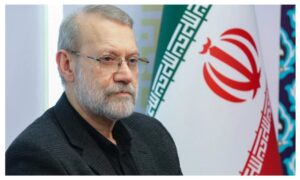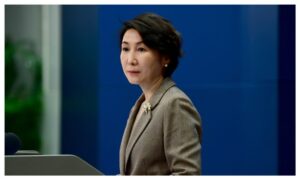The Department of State Services (DSS) has sued Professor Pat Utomi, a former presidential candidate, for planning to create a shadow government in Nigeria.
The case was submitted to the Federal High Court in Abuja. In the case file numbered FHC/ABJ/CS/937/2025, Utomi is the only person named. The DSS claims his plan could cause confusion and disturb the peace in the country.
A team of DSS lawyers, led by Senior Advocate of Nigeria Akinlolu Kehinde, said the idea of a shadow government is not only unusual but also a serious attack on Nigeria’s Constitution and its elected leadership.
The DSS also warned that if Utomi’s plan is not stopped, it might lead to political unrest and tension between different groups. They believe it could also encourage others to form similar illegal groups, putting Nigeria’s security at risk.
The agency is asking the court to declare that the shadow cabinet being planned by Utomi and his supporters is unconstitutional. They argue that it is like trying to create a new kind of authority that Nigeria’s Constitution does not support.
The DSS also wants the court to rule that according to Sections 1(1), 1(2), and 14(2)(a) of Nigeria’s Constitution, no government or similar group can be formed unless it is allowed by the Constitution. Any structure outside this is unlawful.
They are asking the court to permanently stop Utomi and anyone working with him from taking any further steps to set up or run a shadow government or anything similar that the Constitution does not recognize.
The DSS pointed to Section 1(1) of the Constitution, which says the Constitution is the highest law in Nigeria and everyone must obey it.
They added that Section 1(2) makes it clear that Nigeria cannot be governed in any way not allowed by the Constitution.
According to Section 14(2)(a), all power in Nigeria belongs to the people, and any government gets its power from the Constitution which is made by the people.
The DSS insists that Utomi’s idea has no legal backing and goes against the rules of the Constitution.
In a sworn statement, the DSS said it is Nigeria’s main security agency, and its job is to stop anything that can harm national peace or break the country’s laws.
They also said it is their duty to protect the country’s legal authority and to prevent any threats against the institutions that run Nigeria.
It states that it has monitored, “through intelligence reports and open source material, public statements and interviews granted by the defendant, Professor Patrick Utomi, in which he announced the purported establishment of what he termed a ‘shadow government’ or ‘shadow cabinet,’ comprising of several persons that make up its ‘Minister.’
“The ‘shadow government’ or ‘shadow cabinet’ is an unregistered and unrecognised body claiming to operate as an alternative government. Contrary to the provision of the Constitution of the Federal Republic of Nigeria, 1999 (as amended).
“The defendant (Utomi), through public statements, social media, and other platforms, has announced the formation of this body with the intent to challenge the legitimacy of the democratically elected government of Nigeria.
“While inaugurating the ‘shadow cabinet’, the defendant stated that it is made up of the Ombudsman and Good Governance portfolio to be manned by Dele Farotimi; the policy Delivery Unit team consisting of Oghene Momoh, Cheta Nwanze, Daniel Ikuonobe, Halima Ahmed, David Okonkwo, and Obi Ajuga; and the council of economic advisers.
“Based on the intelligence gathered by the plaintiff, the activities and statements made by the defendant and his associates are capable of misleading segments of the Nigerian public, weakening confidence in the legitimacy of the elected government, and fuelling public disaffection,” it said.
“The plaintiff, in the discharge of its statutory duties, has gathered intelligence confirming that the defendant’s actions pose a clear and present danger to Nigeria’s constitutional democracy.
“The defendant’s actions amount to an attempt to usurp or mimic executive authority, contrary to sections 1(1), 1 (2), and 14(2Xa) of the 1999 Constitution (As Amended), which exclusively vests governance in institutions duly created under the constitution and through democratic elections.
“The Federal Government of Nigeria has made several efforts to engage the defendant to dissuade him from this unconstitutional path, including statements made by the Minister of Information, but the defendant has remained defiant.
“It is in the interest of justice, national security, and the rule of law for this honourable court to declare the existence and operations of the defendant unconstitutional and illegal,” it said.







